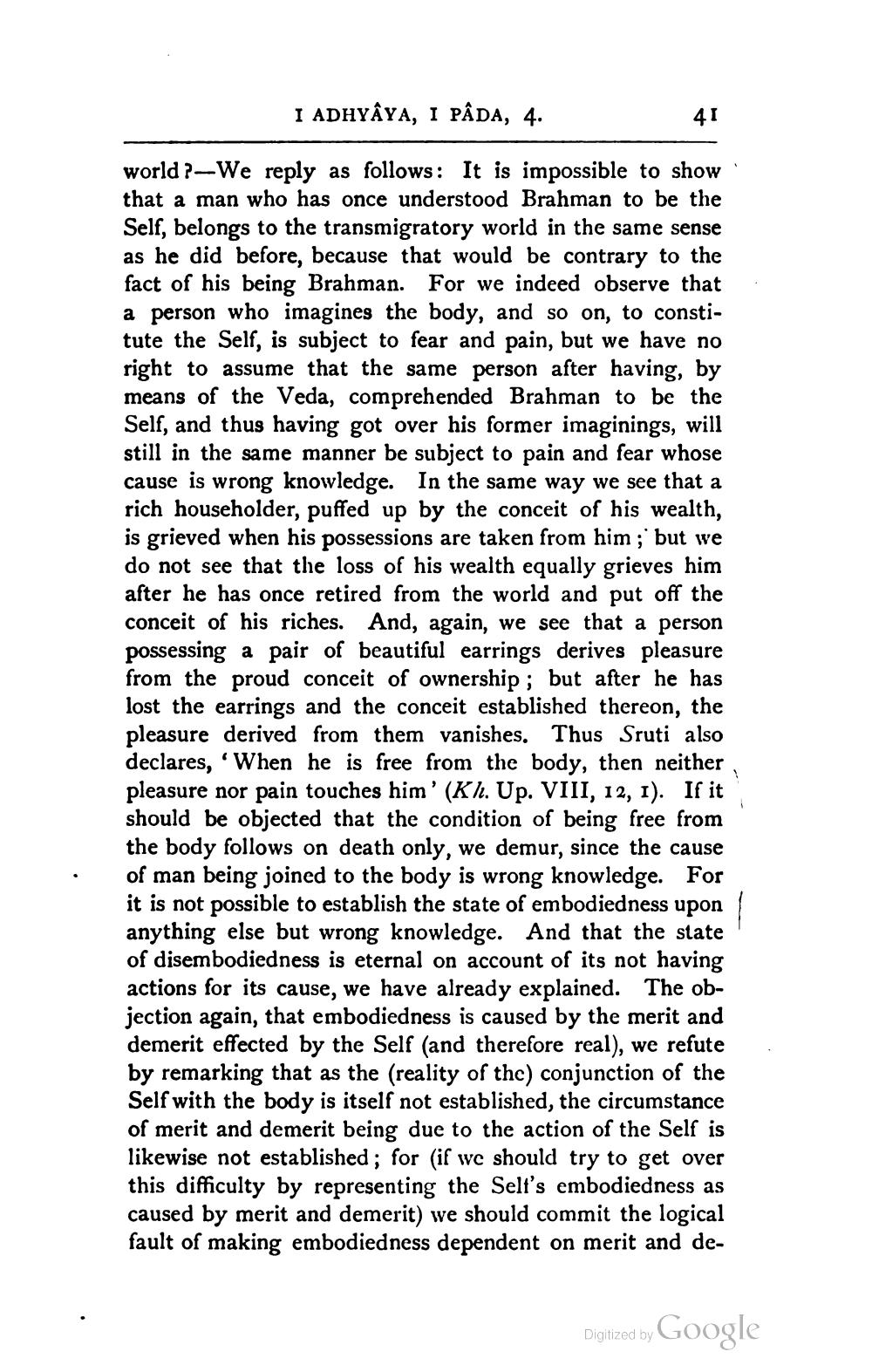________________
I ADHYÂYA, I PÂDA, 4.
41
world ?-We reply as follows: It is impossible to show that a man who has once understood Brahman to be the Self, belongs to the transmigratory world in the same sense as he did before, because that would be contrary to the fact of his being Brahman. For we indeed observe that a person who imagines the body, and so on, to constitute the Self, is subject to fear and pain, but we have no right to assume that the same person after having by means of the Veda, comprehended Brahman to be the Self, and thus having got over his former imaginings, will still in the same manner be subject to pain and fear whose cause is wrong knowledge. In the same way we see that a rich householder, puffed up by the conceit of his wealth, is grieved when his possessions are taken from him ; but we do not see that the loss of his wealth equally grieves him after he has once retired from the world and put off the conceit of his riches. And, again, we see that a person possessing a pair of beautiful earrings derives pleasure from the proud conceit of ownership; but after he has lost the earrings and the conceit established thereon, the pleasure derived from them vanishes. Thus Sruti also declares, “When he is free from the body, then neither pleasure nor pain touches him' (Kh. Up. VIII, 12, 1). If it should be objected that the condition of being free from the body follows on death only, we demur, since the cause of man being joined to the body is wrong knowledge. For it is not possible to establish the state of embodiedness upon anything else but wrong knowledge. And that the state of disembodiedness is eternal on account of its not having actions for its cause, we have already explained. The objection again, that embodiedness is caused by the merit and demerit effected by the Self (and therefore real), we refute by remarking that as the (reality of the) conjunction of the Self with the body is itself not established, the circumstance of merit and demerit being due to the action of the Self is likewise not established; for (if we should try to get over this difficulty by representing the Selt's embodiedness as caused by merit and demerit) we should commit the logical fault of making embodiedness dependent on merit and de
Digitized by Google




